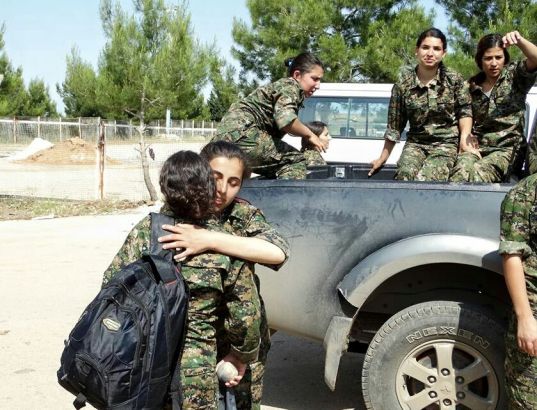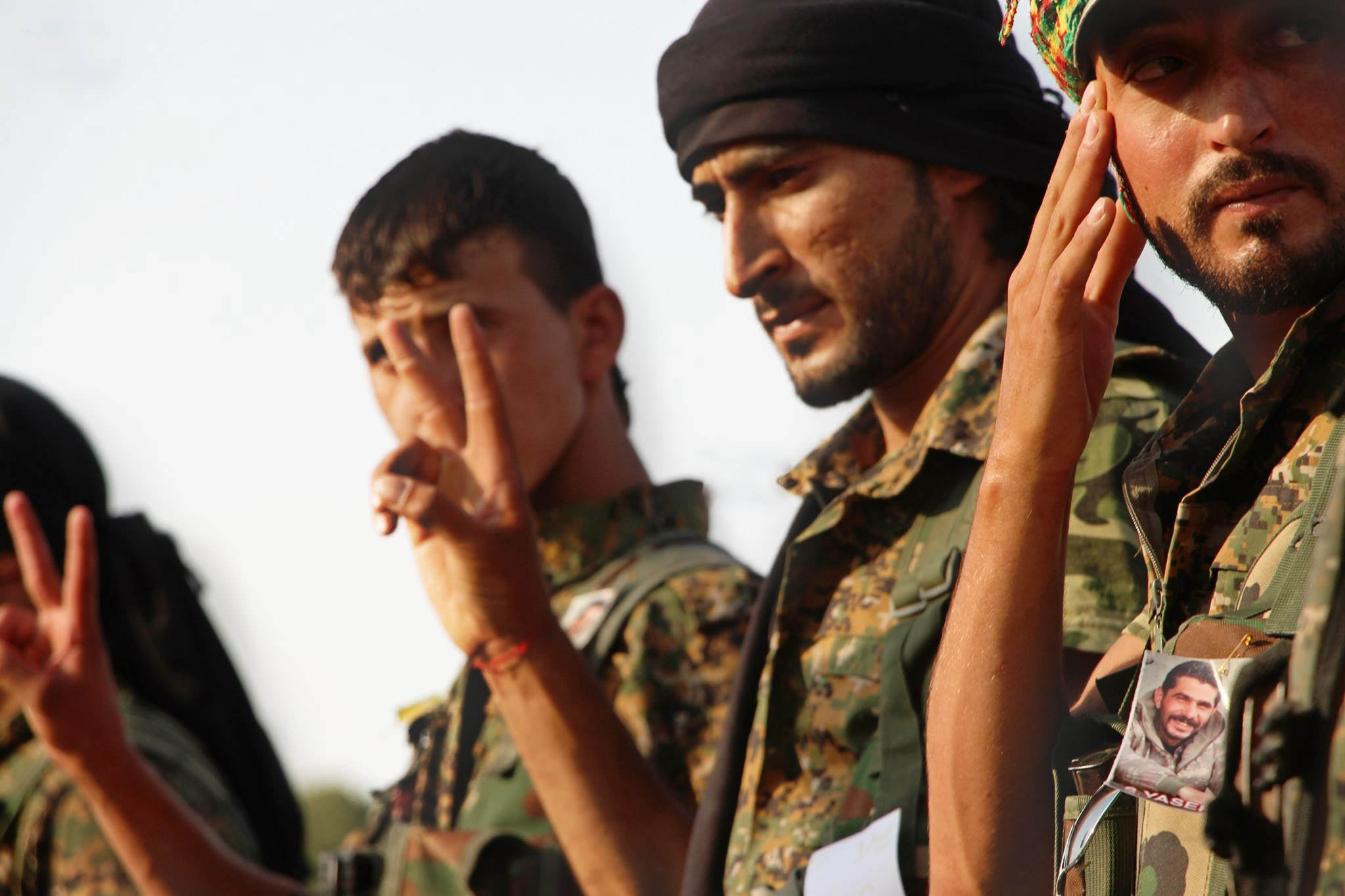
SYRIA'S UNLIKELY OASIS OF STABILITY
Good news from Syria is a scarce commodity these days, but in a fascinating feature for The New York Times Magazine, Pulitzer Center grantee Wes Enzinna visits a sliver of this benighted country where the rules of the ISIS caliphate have been turned on their head in favor of a socialist utopia.
The place is called Rojava—or "land where the sun sets"—and it is governed in accordance with a philosophy laid out by Abdullah Ocalan, the Kurdish guerrilla fighter (or terrorist—take your pick) who has spent the last 16 years languishing in a Turkish prison. In Rojava, Wes discovers that women are respected as leaders, defense of the environment is enshrined in law and radical direct democracy is enacted in the streets.
What accounts for this unlikely oasis of stability in the midst of Syria's chaos? Wes notes that an entire generation of Syria's youth has been forced to become either refugees or warriors:
"And for those who choose the latter, their only options are different flavors of militancy: the Islamic State, Assad's regime, the Kurdish revolution. Syrians have endured an endless cycle of extreme conditions over the past four years, and so, perhaps, it should be no surprise that only the most extreme ideologies, no matter how brutal or utopian, are thriving."
TERROR IN PARIS, FEAR IN AMERICA
Following the terror attacks in Paris earlier this month, many political leaders in this country have called for closing our borders to refugees from Syria, creating a registry of all Muslims in this country, shutting down their mosques and declaring war on "radical Islam." In this climate of fear, it was heartening to hear from one of our former grantees, Alice Su, now studying in China but who last year completed two projects for us, one on the protracted refugee crises in Jordan and Lebanon, the other on youth extremism in Jordan and Tunisia.
Reflecting on the plight of world's refugees, Alice wrote: "We need these survivors of Syria, Iraq, Palestine, Sudan, and so many more places to become our neighbors and friends. We need their resilience, their capacity for love, and their understanding that peace is precious and freedom is rare. In a time of terror, these brothers and sisters are our best bet against fear. They have lost more to terrorism than we have and hate it more than we do. They know how to see through the darkness, to survive evil without becoming part of it, to lose everything and yet breathe courage and burn with hope."
MAKING VIRTUE PAY
Can money grow on trees? Conventional wisdom says no, but in stories for The Guardian's "Long Read" and The New Yorker, Pulitzer Center grantee Sam Knight explains how a "beautiful idea" to tackle climate change is taking root in one of the most remote corners of the planet.
REDD+—Reducing Emissions from Deforestation and Degradation—is the UN's plan to bring forests into the fight against climate change. It is, as Sam explains, quite a beautiful idea:
"There are three trillion trees on Earth and they are perfectly made to take carbon dioxide out of the atmosphere. Every year, the world's forests and bogs are thought to absorb around 1.6 gigatonnes of our 10 gigatonnes of manmade emissions. Of course we are degrading these ecosystems at a terrible rate." Sam writes. "In an era of climate change, destroying forests is one of the most harmful things we can do. It takes one of our best hopes of controlling the damage and sets it against us."
The idea is to create an economic incentive to reverse this trend. Industrialized countries—the main contributors to global warming—would pay developing counties to keep their forests intact. Sam traveled to Papua New Guinea where the idea of REDD+ was conceived and where it just might work.
Sam's articles and two more from grantee Justin Catanoso for North Carolina newspapers, The News & Observer, and News & Record, are essential reading ahead of this week's critical climate change summit in Paris.
Until next week,
Tom Hundley
Senior Editor


